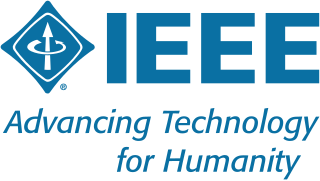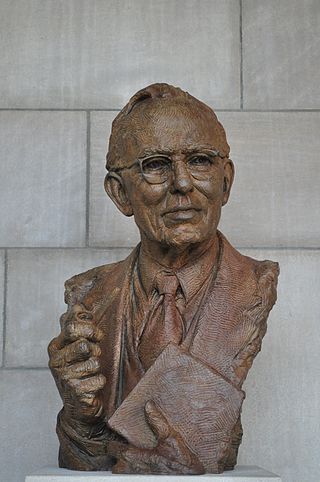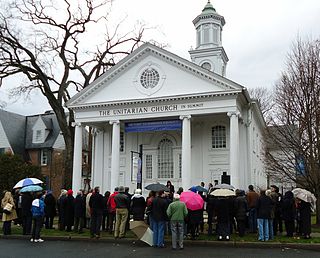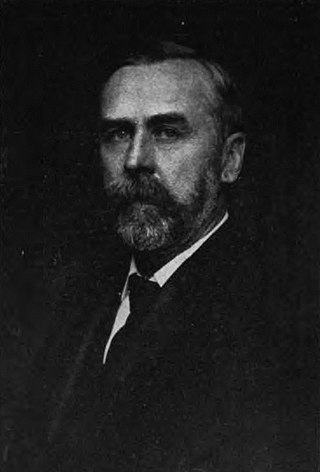
Unitarian Universalist Association (UUA) is a liberal religious association of Unitarian Universalist congregations. It was formed in 1961 by the consolidation of the American Unitarian Association and the Universalist Church of America, respectively. However, modern Unitarian Universalists see themselves as a separate religion with its own beliefs and affinities. They define themselves as non-creedal, and draw wisdom from various religions and philosophies, including humanism, pantheism, Christianity, Hinduism, Buddhism, Taoism, Judaism, Islam, and Earth-centered spirituality. Thus, the UUA is a syncretistic religious group with liberal leanings.

Unitarian Universalism is a liberal religious movement characterized by a "free and responsible search for truth and meaning". Unitarian Universalists assert no creed, but instead are unified by their shared search for spiritual growth. Unitarian Universalists do not have an official, unified corpus of sacred texts. Unitarian Universalist congregations include many atheists, agnostics, deists, and theists; there are churches, fellowships, congregations, and societies around the world.
Unitarianism is a nontrinitarian branch of Christianity. Unitarian Christians affirm the unitary nature of God as the singular and unique creator of the universe, believe that Jesus Christ was inspired by God in his moral teachings and that he is the savior of humankind, but he is not equal to God himself. Accordingly, Unitarians reject the Ecumenical Councils and ecumenical creeds, and sit outside traditional, main-stream Christianity.

The Institute of Electrical and Electronics Engineers (IEEE) is an American 501(c)(3) professional association for electronics engineering, electrical engineering, and other related disciplines.

The National Council of the Churches of Christ in the USA, usually identified as the National Council of Churches (NCC), is the largest ecumenical body in the United States. NCC is an ecumenical partnership of 38 Christian faith groups in the United States. Its member communions include mainline Protestant, Eastern Orthodox, Oriental Orthodox, African-American, evangelical, and historic peace churches. Together, it encompasses more than 100,000 local congregations and 40 million adherents. It began as the Federal Council of Churches in 1908, and expanded through merger with several other ecumenical organizations to become the National Council of Churches in 1950. Its Interim President and General Secretary is Bishop Vashti Murphy McKenzie.

The Covenant of Unitarian Universalist Pagans is an independent affiliate of Unitarian Universalists who identify with the precepts of classical or contemporary Paganism: celebrating the sacred circle of life and guiding people to live in harmony with the rhythms of nature. CUUPS members foster the development of "liturgical materials based on earth- and nature-centered religious and spiritual perspectives" as well as encourage "greater use of music, dance, visual arts, poetry, story, and creative ritual in Unitarian Universalist worship and celebration." Many members of CUUPS embrace the cycle of seasons and beauty of all life forms found in nature. Unlike many mainline religious sects, Unitarian Universalists and Pagans both value the "sacredness in the present world rather than on an afterlife." CUUPS is a community open to all Unitarian Universalist members and those who support the tenets.

Beacon Press is an American left-wing non-profit book publisher. Founded in 1854 by the American Unitarian Association, it is currently a department of the Unitarian Universalist Association. It is known for publishing authors such as James Baldwin, Mary Oliver, Martin Luther King Jr., and Viktor Frankl, as well as The Pentagon Papers.
The Earth Charter is an international declaration of fundamental values and principles considered useful by its supporters for building a just, sustainable, and peaceful global society in the 21st century. Created by a global consultation process, and endorsed by organizations representing millions of people, the Charter "seeks to inspire in all peoples a sense of global interdependence and shared responsibility for the well-being of the human family, the greater community of life, and future generations." It calls upon humanity to help create a global partnership at a critical juncture in history. The Earth Charter's ethical vision proposes that environmental protection, human rights, equitable human development, and peace are interdependent and indivisible. The Charter attempts to provide a new framework for thinking about and addressing these issues. The Earth Charter Initiative organization exists to promote the Charter.

Alvin Saunders Johnson was an American economist and a co-founder and first director of The New School.
The Association for Information Systems (AIS) is an international, not-for-profit, professional association for scholars of information systems that was established in 1994. The association publishes journals, organizes conferences, and provides a forum for information systems professors and managers. It has members in more than 100 countries.

Unitarian Universalism, as practiced by the Unitarian Universalist Association (UUA), and the Canadian Unitarian Council (CUC), is a non-Creedal and Liberal theological tradition and an LGBTQ affirming denomination.

All Souls Unitarian Universalist Church, built in 1894 in the Richardsonian Romanesque style is a historic building located at 25 Church Street in Bellville, Ohio. On January 1, 1976, it was added to the National Register of Historic Places.
Homer A. Jack was an American Unitarian Universalist clergyman pacifist and social activist who helped found the Congress of Racial Equality and National Committee for a Sane Nuclear Policy (SANE).

SeedChange, formerly known as USC Canada, is a non-profit organization that works with farmers around the world, including in Canada, to strengthen their ability to grow food sustainably with locally adapted seeds. The organization was founded in 1945 by Lotta Hitschmanova as the Unitarian Service Committee of Canada. It updated its name in October 2019, a few months short of its 75th year.

John Graham Brooks was an American sociologist, political reformer, and author. A former Unitarian minister, Brooks resigned from the ministry in 1891 and became an academic specialist in the field of labor relations. A prominent lecturer and public intellectual, Brooks rejected the doctrine of socialism, instead advocating for the regulation of predatory monopolies and the initiation of progressive social reform legislation to ameliorate the most glaring problems suffered by the working class.
Nonprofit Quarterly, also known as NPQ, is a quarterly publication of current information on non-profit organizations and social justice. Today it also regularly publishes written, video, and audio content online. NPQ curates conversations among civic actors that build shared understanding around core themes of racial justice, economic justice, climate justice, health justice, and leadership. By deepening field knowledge, NPQ aims to advance the theory and practice of multiracial democracy.
The Dark Overlord is an international hacker organization which garnered significant publicity through cybercrime extortion of high-profile targets and public demands for ransom to prevent the release of confidential or potentially embarrassing documents.










